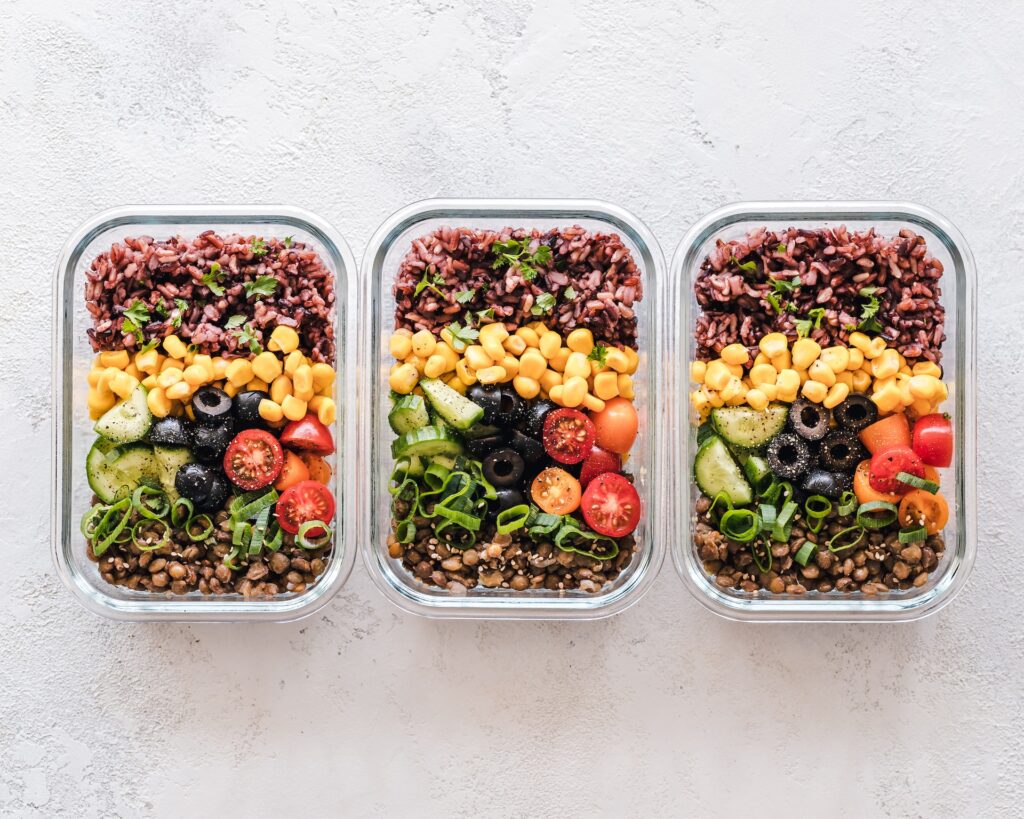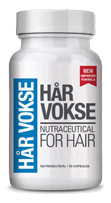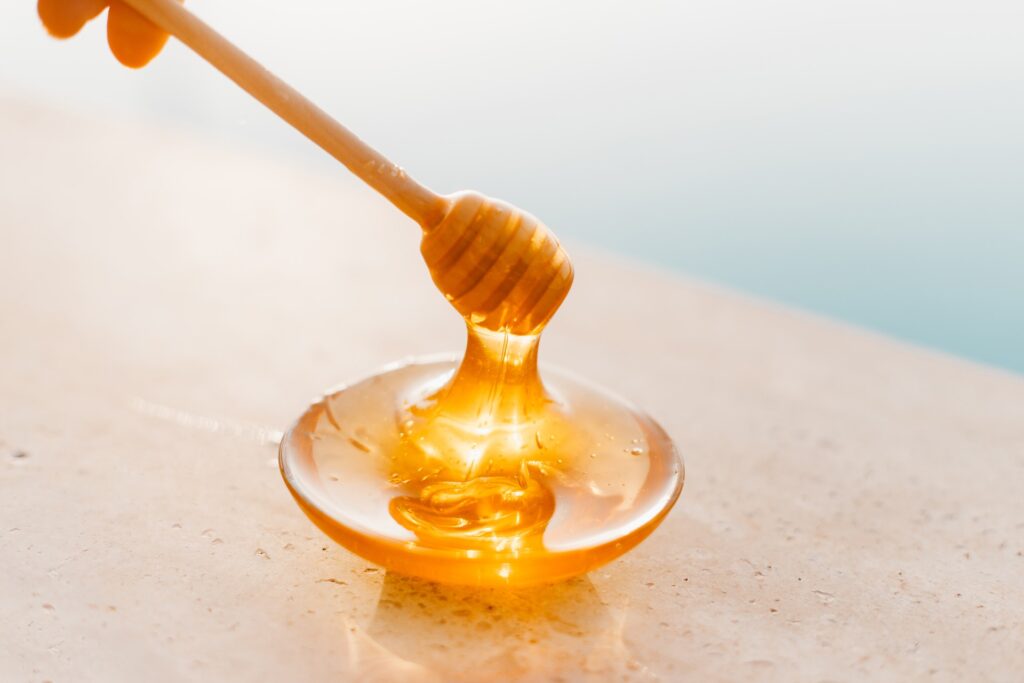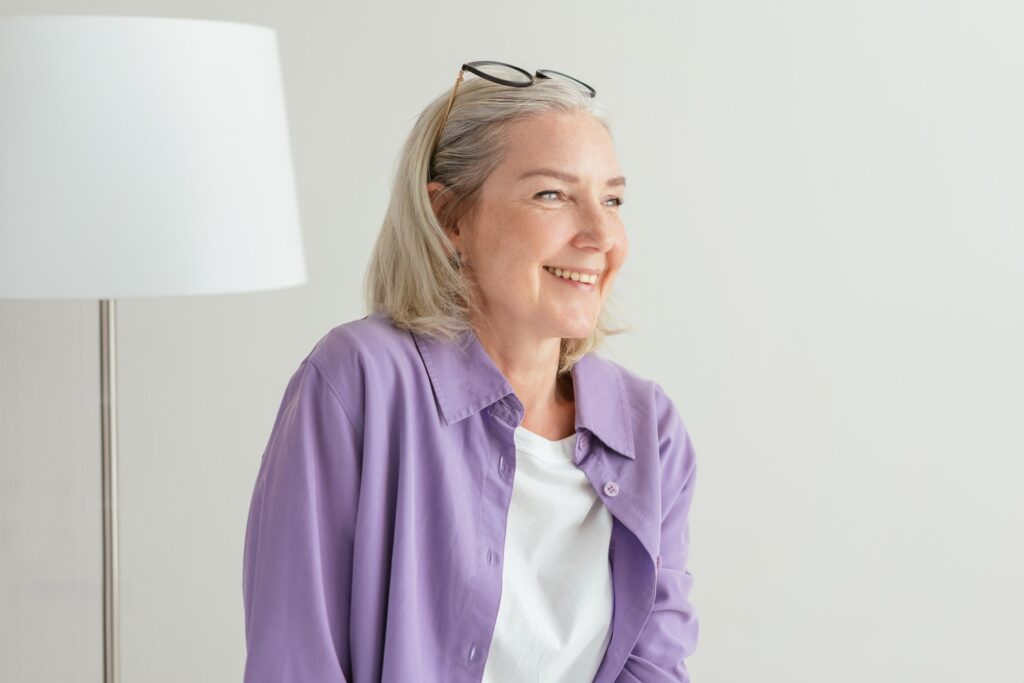If your hair becomes thin or starts to fall out excessively, you must know this is a common problem that many aged women experience. But what could be causing hair thinning? Well. Many reasons could be responsible for causing those hair problems including menopause.
Hair thinning or loss is a common symptom of hormonal imbalance caused by menopause, and it can be reversed easily.
So the question is; How to reverse thinning hair after menopause? In this article, I will include the top tips that help boost hair growth, how menopause affects hair health, how to deal with this problem, and more FAQs.
Let’s get started…
Table of Contents
How To Reverse Thinning Hair After Menopause?
1- Eat Healthy Meals

What you eat affects your hair health significantly, meaning, if you consistently consume junk food, candy, soda, and refined carbs, don’t expect to grow healthy strong hair.
Your body needs nutrients and antioxidants to boost your hair and scalp health.
So, What Should You Do? You should always add vegetables, leafy greens, protein, nuts, and whole grains to your meals.
They are full of vitamins, minerals, fatty acids, antioxidants, and healthy fats that can help your body reverse thinning hair or hair loss.
- For example; protein is essential as your hair is made of keratin, a type of protein, so you will need to eat enough protein daily to help grow thick and strong hair.
- Also, leafy greens, vegetables, and fruits contain minerals like zinc, copper, and iron and vitamins like vitamins C, A, E, & B7 (biotin) which can strengthen hair, prevent breakage, stimulate hair growth, and increase shine.
- As for foods that are rich in healthy fats like salmon, nuts, olive oil, and avocados, they can boost hair health and keep the scalp hydrated and free of infections.
- Whole grains are also loaded with minerals, vitamins, and fibers that improve your overall health including your hair health.
2- Stay Hydrated
As we age our skin including the scalp becomes dull, thinner, and drier.
Also, dehydration can trigger irritation, flaking, and itching and make your scalp more prone to infections like dandruff.
So how To Fight This? You need to drink enough water daily and consume foods that are rich in water content to nourish skin cells and keep the scalp healthy. This will definitely lead to healthy and lustrous hair and help your body function well.
Plus, using hydrating haircare products play a role in keeping the scalp nourished and moisturized.
Related: How To Tell If You Are Dehydrated? 11 Early & Warning Signs
3- Manage Stress

Stress is your enemy! It’s one of the top factors that make your hair thinner and cause bald spots.
Consistent stress can prevent your body from delivering essential nutrients to your scalp and hair.
Your body releases cortisol (which is known as the stress hormone) when you’re stressed. This puts your body in survival mode so it works on providing nutrients to only vital organs and ignores other organs like the scalp.
And this will lead to thin and unhealthy hair and could cause also hair loss.
So, How To Manage Stress Levels?
- Do yoga.
- Meditate for 5-15 minutes a day to clear your mind.
- Exercise 3-5 days every week to release stress.
- Focus on a new hobby.
- Try deep breathing exercises.
- Spend more time in nature daily.
- Go for a walk.
- Talk with your friends or family.
Related: How To Regain Hair Loss From Stress In 6 Easy Ways
4- Stay Active
Regular exercise is the main key to living a healthy life and keeping your mind clear.
It makes your body stronger, increases muscle mass, helps you stay in shape, reduces mood swings and stress levels, and improves sleep quality.
Plus, it helps reduce common menopause symptoms and boost your immunity which will in return promote your overall health including scalp and hair health.
So What To Do? You can join a gym, work out at home, take a walk, or go for a run at least 3-5 days each week.
5- Take Supplements
How to reverse thinning hair after menopause? Taking supplements that are formulated with certain nutrients can successfully stimulate hair growth, prevent hair thinning, strengthen existing hair, and boost scalp health.
So what should you take? The Har Vokse Hair Growth Supplement is a remarkable product that is packed with 10 essential nutrients to support your hair and scalp health.
It contains vitamins E, B6, & B7 (Biotin), rosemary leaf extract, copper, selenium, amla extract, L- Arginine, L-Cysteine, and hydrolyzed marine collagen.
Related: What Is Better For Thinning Hair Biotin Or Collagen?
Those beneficial ingredients help stimulate thicker hair, reverse hair thinning, keep hair follicles strong and protected, nourish the scalp, prevent hair loss, and treat receding hairline.
Additionally, they held a clinical study that found the Har Vokse supplement can increase healthy hair growth in more than 63% of participants.
It’s a recommended product by dermatologists, and both men and women can use it, Check the product here:

6- Avoid Heat Styling Tools
Using hair straighteners and blow dryers or treating hair chemically when it’s weak and thin can make it even more vulnerable and increase damage and breakage.
So What To Do? it’s best to go natural and don’t use heat styling tools to keep hair protected and reduce damage.
But if you must use those tools, apply a heat protectant spray to your hair before styling. Also, make sure to deep condition your hair at least once a week to strengthen and nourish follicles.
And if you need to dye your hair, go with all-natural hair color instead of using chemical dyes.
Plus, if you swim, wear a swim cap to protect your hair from chlorine and prevent breakage. And protect your hair and scalp from the sun by wearing a hat or applying a UV hair protectant.
Related: How To Protect Hair From Chlorine In 8 Easy & Quick Steps
7- Massage Your Scalp Regularly
The key to healthy strong hair is a healthy nourished scalp. Studies showed that frequent scalp massage can increase blood flow, support scalp health, and boost hair growth.
The study found also that massaging the scalp helps relieve stress and anxiety which can reverse hair thinning and reduce stress-induced hair loss.
Plus, regular massage helps stretch hair follicles’ cells which will boost hair thickness and keep it strong.
What makes scalp massaging even more efficient is using hair growth oils like rosemary oil or tea tree oil.
How To Massage Your Scalp Effectively?
- Use your fingertips to massage the scalp in a circular motion.
- Apply gentle pressure on the scalp to stimulate blood circulation.
- Massage for 4 minutes every day to get the best results.
8- Try At-Home Hair Growth Remedies

Hair growth remedies have been used for centuries to help reverse thinning hair, moisturize the scalp, strengthen existing hairs, stimulate hair growth, and keep hair nourished and shiny.
So What Should You Use?
- Rosemary oil can promote hair growth, boost blood flow, and treat androgenetic alopecia. To use it, apply a few drops to your scalp and massage for a few minutes. Leave it on for 30 minutes then wash your hair.
- Aloe vera gel has antioxidant and anti-inflammatory properties that can prevent hair thinning, keep hair protected, and maintain a healthy scalp. To use it, apply aloe vera gel to your hair for 30 minutes then rinse your hair.
- Apple cider vinegar is high in acetic acid, so it can balance the scalp’s pH, reduce scalp infections, and promotes blood flow which will increase hair growth. To use it, pour 2 tablespoons of ACV and one cup of water into a spray bottle. Spritz it on your scalp and hair and massage for a few minutes. Leave it for 15 minutes then shampoo and condition your hair.
- Honey has antioxidant and anti-inflammatory properties that help reduce damage, prevent hair shedding, keep hair manageable, and boost scalp health. To use it, combine 2 tablespoons of honey and 2 tablespoons of olive oil with one ripe avocado then apply the mixture to your hair and scalp for 30-60 minutes, then shampoo and condition your hair.
- Ashwagandha oil helps prevent hair loss, improve scalp health, keep hair strong, and condition your hair and scalp. To use it, mix well 2-3 tablespoons of ashwagandha oil with one cup of yogurt and apply the mixture to your scalp and hair. Massage the scalp and leave it on for 30 minutes then shampoo and condition your strands.
- Moringa oil strengthens hair, supports scalp health, prevents breakage, stimulates hair growth, and maintains hair color. To use it, apply a few drops to your scalp and hair and massage for 2-4 minutes. Leave it on for 30 minutes then wash your hair.
What Is The Connection Between Hair Loss And Menopause?

Studies showed that two-thirds of postmenopausal women have to deal with hair thinning or bald spots. Plus, nearly every woman experiences some degree of female pattern hair loss.
Menopausal hair loss is related to extreme hormonal changes that women experience during perimenopause and menopause.
The ovaries start to reduce the production of sex hormones including estrogen and progesterone. And this with time leads to an increase in male hormones; androgen and testosterone.
This hormonal fluctuation affects your hair growth cycle, making it short. Plus, hair will start to grow more slowly and could become thinner.
Androgen shrinks hair follicles on the head and as a result, the hair shaft becomes smaller. This increases hair shedding, grows thinner hair, and lengthens the start of the new hair growth phase.
In addition to those changes, eating unhealthy meals, having high-stress levels, and using harsh chemicals or hair styling tools regularly can increase hair loss.
Related: What Are The Signs Of Perimenopause & How To Deal With It
How To Deal With Thinning Hair After Menopause?
To hide hair thinning or loss until you fix the problem:
- Cut your hair as this will make your hair look thicker and fuller.
- Wear a wig or scarf.
- Wear hair extensions.
- Use topical hair growth products and take supplements.
- Try heatless methods to curl your hair, this makes hair look thicker and covers bald spots.
- Go with surgical hair transplants.
- Try low-level laser scalp treatments.
Is Menopausal Hair Loss Permanent?
No. Menopausal hair loss is usually not permanent as it can be reversed easily if you made some lifestyle changes, including:
- Improve your diet.
- Use organic hair care products that are free of harsh chemicals to avoid further damage.
- Use vitamin supplements.
- Massage your scalp regularly.
- Try home remedies that are known to boost hair health like aloe vera, rosemary oil, or honey.
- Visit a healthcare provider.
Does Biotin Help With Menopausal Hair Loss?
Yes. Biotin (vitamin B7) is an essential vitamin that boosts the production of keratin, a type of protein that is responsible for forming hair, skin, and nails.
A study showed that biotin deficiency could lead to hair loss. So it helps prevent hair loss, promote hair growth, and treat bald spots. But we still need more studies to support the evidence.
Related: Biotin For Hair Growth: Does It Really Prevent Hair Loss?

FAQs:
Is Hair Loss From Menopause Grow Back?
Yes. Hair loss from menopause can grow back as it caused due to hormonal changes, so it can be reversed easily.
How Can I Fix My Thinning Hair During Menopause?
– Eat nutritious meals.
– Manage stress.
– Exercise.
– Take supplements.
– Massage the scalp.
– Go with natural hair remedies.
– Avoid heat-styling tools.
– Drink enough water each day.What Vitamins Are Good For Hair Loss After Menopause?
Nutrients that help reverse menopausal hair loss include:
– Biotin (vitamin B7).
– Vitamins B12 & B6.
– Iron.
– Collagen.
– Copper.How Can I Improve My Hair After Menopause?
– Take supplements.
– Improve your diet.
– Reduce stress.
– Work out regularly.
– Try hair growth remedies.
– Go easy on heat styling tools.
– Massage the scalp regularly.
– Keep your body hydrated.
The Bottom Line
Menopausal hair loss or thinning is a common issue that makes many women lose their confidence and feel anxious about their appearance.
So how to reverse thinning hair after menopause? It’s simple, all you need to do is to eat more healthy meals, drink enough water, take supplements, manage stress, reduce hair damage, massage your scalp daily, exercise, and try home remedies.
Also, it’s best to consult a healthcare provider to help you and prescribe suitable treatments if you need to.
Feature Image Source: https://www.pexels.com/@pavel-danilyuk/
* It’s best to consult a healthcare provider before adding new supplements to your diet.
* Hey Gorgeous! The Nfrw is reader-supported and I may earn commissions if you purchase products from retailers after clicking on a link from the site.
